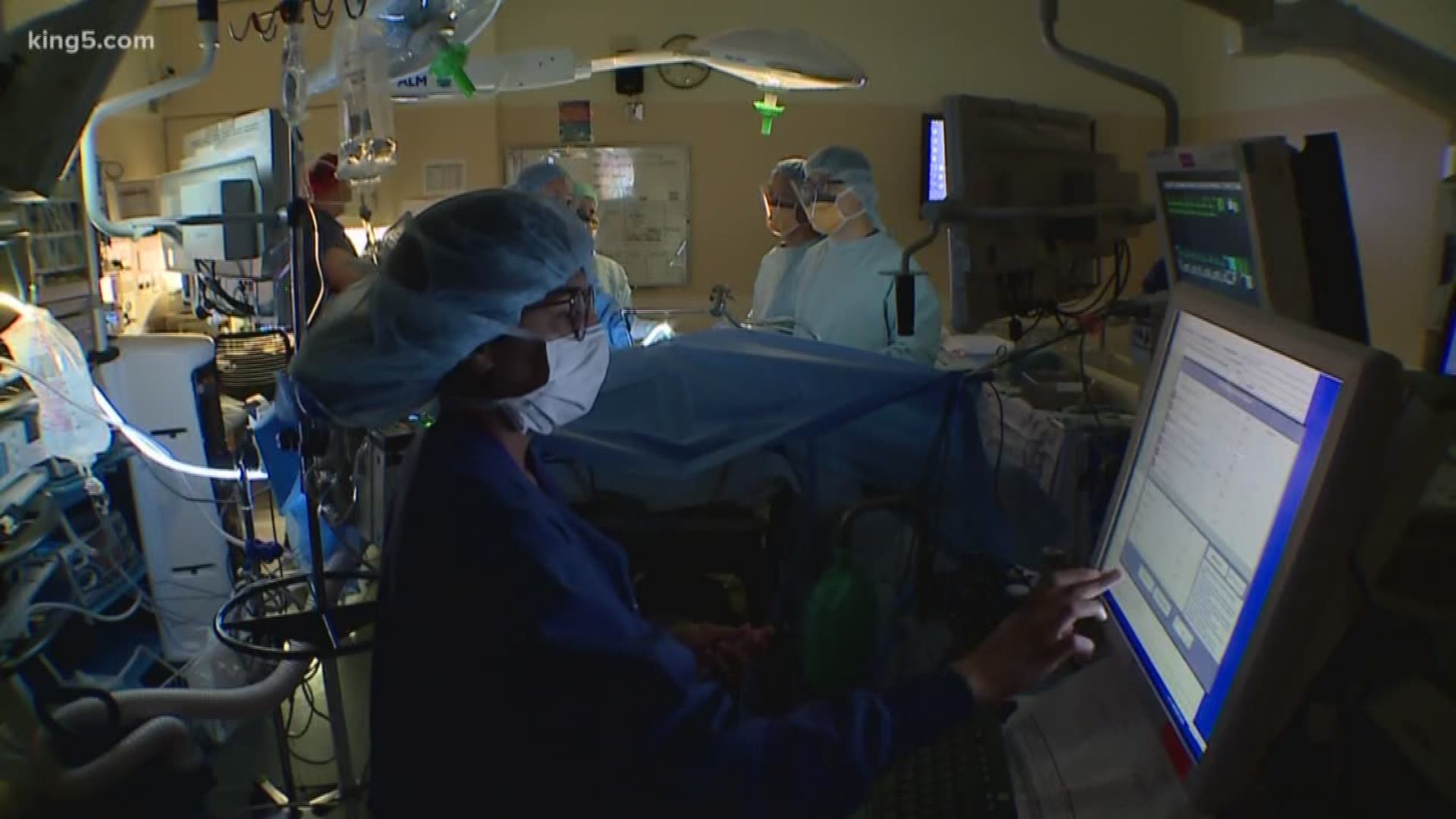Roughly 30 million people in the U.S have Type 2 Diabetes. The disease claims 80,000 lives each year.
One senior investigator at the UW Medicine's Diabetes Institute is thinking way outside the box about Type 2 Diabetes treatment and getting impressive results.
“The two leading causes of death and disability that are rising the fastest everywhere are increased body size and increased blood sugar. In other words, obesity, and diabetes,” explained Dr. David E. Cummings, a senior investigator at UW Medicine Diabetes Institute.
Dr. Cummings serves as program co-chair for the World Congress on Interventional Therapies for Type 2 Diabetes. He’s trying to get the medical community to look at treatment in a very different way.
“There are at least a dozen different newly discovered weight independent anti-diabetes mechanisms engaged by metabolic surgery, along with the secondary benefits of weight loss,” said Dr. Cummings.
Gastric bariatric surgery is used primarily to help obese people lose weight and generally delivers positive changes for the many health problems that come with obesity.
“Endocrinologists like me usually think of diabetes type 2 as a chronic, progressive, relentless disease where our goal is just to stave off the terrible complications like blindness, amputations, kidney disease, heart attack, strokes, death. We seldom think you can actually get rid of the disease.”
That is unless you consider the changes that could take place in a patient after metabolic surgery.
“So bariatric operations were designed to promote weight loss and they are tremendous at that. But we in the field are trying to re-brand this type of operation as metabolic surgery, to a greater extent, emphasize its benefits on metabolic diseases like diabetes, blood pressure, cholesterol, sleep apnea, GERD, etcetera," said Dr. Cummings.
Ron Lentz of Renton rummages through his refrigerator filled with healthy food and finds an unopened package of prescription insulin.
“It was filled July 12, 2018. That’s the last time I filled a diabetes medication," said Lentz. "I had my surgery in September and I haven’t got another one since."
Lentz is a former diabetic who had a list of serious ailments, including cardiomyopathy which was leading to a heart transplant.
Last year, he was taking 28 medications a day. Among them, very expensive insulin for Type 2 Diabetes.
“I think my insulin medication alone is around $17,000 annually."
Lentz had a gastric sleeve procedure back in September of 2018. Before the surgery, he weighed 327 pounds, wasn’t very mobile, and had a shortened life expectancy.
The procedure was to prepare him for a heart transplant, but it would turn his life around.
“I walk with my grandchildren. I play with my grandchildren. I take them to the zoo. Couldn't do that until after I had this procedure,” said Lentz.
He’s lost 70 pounds so far and his overall health has greatly improved.
“At least 70 percent of people with Type 2 Diabetes who undergo metabolic surgery will enjoy complete remission,” Dr. Cummings explained.
In the U.S. you must have a body mass index higher than 40 and have serious weight-related health problems to qualify for metabolic surgery. Dr. Cummings believes those numbers are too high and he’s working to change that.
“A lot of this has to do with obesity bias. In other words, both inherent and external inherent. As I'm guilty, I know that my obesity is my own fault and externalize other people blaming that on you, not understanding that most of it is deemed by your genetics and largely out of your volitional control,” said Dr. Cummings.
Through Dr. Cummings' and the World Congress on Interventional Therapies for Type 2 Diabetes efforts, there are changes to those guidelines in many parts of the world.
“The new diabetes surgery summit guidelines, which allow consideration of metabolic surgery for people with inadequately controlled diabetes and a BMI as low as 30 or down to twenty-seven point five for Asians. They've been adopted by many countries outside of the United States," Dr. Cummings said. "They're the big ones, like where most people with diabetes live. China, India, Indonesia, Japan, Korea, Australia, Many other Asian countries. Many countries in South America, the Middle East, the United Kingdom. But they haven't really penetrated the United States yet."
Lentz now walks about 4 to 5 miles a day, he’s active with his grandkids and has a positive outlook on life.
“I can go wherever I want to go. I can do whatever I want to do. I don't take any insulin with me. I don't need it. And, you know, you lose 70 pounds. I'm able to do things with my grandchildren that I couldn't do two years ago,” said Lentz.

